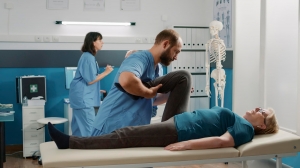Laser eye surgery can correct vision problems like nearsightedness, farsightedness, and astigmatism. With its promise of reducing or eliminating the need for glasses or contact lenses, it's no wonder that many individuals consider this life-changing procedure. However, like any medical treatment, laser eye surgery isn't right for everyone. If you are considering the procedure, there are several important questions to ask yourself before making a decision.
What is my current vision condition?
Understanding your specific vision needs is the first step in deciding whether laser eye surgery is suitable for you. Laser eye surgery is typically used to treat nearsightedness (myopia), farsightedness (hyperopia), and astigmatism. If your vision issues fall outside of these categories, you may not be a candidate for the procedure. Furthermore, certain vision conditions like presbyopia, which affects near vision as you age, may require additional treatments or may not be completely correctable with laser surgery alone.
Am I in good overall health?
Laser eye surgery is a medical procedure, and being in good health is essential to ensuring a smooth recovery. People with certain medical conditions, like autoimmune diseases, uncontrolled diabetes, or severe dry eye, may not be ideal candidates for laser eye surgery. Additionally, if you are pregnant or nursing, it is generally recommended to wait until after this period to undergo the procedure, as hormonal changes can affect the stability of your vision.
Am I over 18 and have stable vision?
For most types of laser eye surgery, candidates must be at least 18 years old, though some surgeons may recommend waiting until your early 20s to ensure that your eyes have fully developed and your vision has stabilized. If your prescription has been changing frequently, it may not be the right time to undergo surgery. A stable prescription for at least a year is generally required to ensure the best long-term outcomes.
What are the potential risks and side effects?
While laser eye surgery is considered safe for most people, it does come with potential risks and side effects. Common side effects can include dry eyes, glare, halos, and fluctuating vision. In rare instances, more serious complications such as infection, vision loss, or undercorrection or overcorrection of vision can occur. It's crucial to have a thorough consultation with a Los Angeles LASIK eye surgeon who can explain the risks and help you understand the likelihood of these complications in your case.
What are my lifestyle and personal preferences?
Consider how your lifestyle might influence your decision to undergo laser eye surgery. If you lead an active lifestyle or take part in sports that require sharp vision, the prospect of not having to rely on glasses or contacts can be particularly appealing. Additionally, laser eye surgery can provide long-term savings on eyewear, which might be a financial consideration. On the other hand, if you are not comfortable with the idea of a surgical procedure or have concerns about recovery time, you may want to weigh the decision carefully.
Am I financially prepared?
While the cost of laser eye surgery varies, it's typically an out-of-pocket expense not covered by insurance. The price often depends on factors like the type of procedure, the surgeon's experience, and geographic location. It's important to assess your financial situation and determine if the cost aligns with your budget. In some cases, financing options or payment plans are available, so be sure to explore all options.






